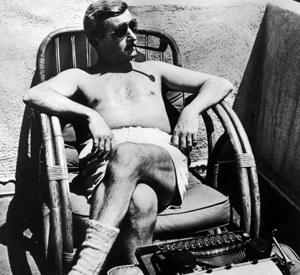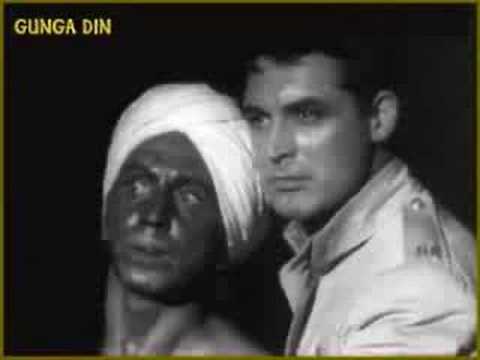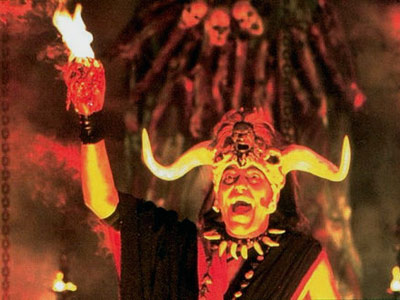68
If you’re like me, then you did not realize, when first seeing the name “Gunga Din,” that it, in fact, should be pronounced Gunga DEEN. Of course, the only way I now know this is because I finally read the original Kipling poem wherein it is found to rhyme with the word “green.” By now you’re probably thinking, “not another adventure based on the stories of one Rudyard Elizabeth Kipling!” (Loyal readers will remember that we originally encountered him here), but the poem itself however is not the reason we’re here. No, today we are here to study Cary Grant again. You are going to find that certain adventure themes crop up from time to time. Among them are Rudyard Kipling, the year 1939, and Cary Grant. (Loyal readers will remember that we originally encountered Mr. Grant here). At any rate, in the poem Gunga Din dies and goes to Hell, so it’s not adventurous as they try to make it seem in the movie version.
The film version of Gunga Din premiered in the year 1939 along with about a million other Greatest Classics Of All Time including: The Wizard of Oz, Gone with the Wind, Mr. Smith Goes to Washington, and last but not least, Stagecoach (loyal readers will remember that we originally encountered Stagecoach here). So it was that Gunga Din walked into this banner year with a script that was partially written by William Faulkner. (Though to his credit, William Faulkner is un-credited). It was based on the poem “Gunga Din” by Kipling, as well as a collection of stories by Kipling about three soldiers, which was fittingly titled Soldiers Three.

Seeing as this may be the only time William Faulkner is mentioned in our countdown I tried to find the most ridiculous picture of him that I could.
The film is about these three friends, but also about a cult called Thuggee. This is where we get the English word “thug.” The Thuggee existed at the same time as the British Empire and would attack bands of travelers and take their possessions. During this time there were few well-kept roads through India and groups would have to travel in caravans. The Thuggee would infiltrate the caravans, sometimes travelling for hundreds of miles before revealing their true nature and betraying everyone in the caravan for murder and plunder. This of course gave the British many headaches, but the cult actually managed to stay around for quite awhile. Some people say it exists even to this day. However, those people are wrong it was rendered obsolete by a little thing called the railroad.
This cult is the group that somehow manages to kidnap all three of Kipling’s famous soldiers. The aforementioned Cary Grant plays one. Another is played by Douglas Fairbanks Jr. The rumor is that they both wanted the same role so they flipped a coin for it and Grant won. The film is full of many iconic moments some of which were outright stolen by a more adventurous film that we’ll encounter later on. It features many great 1930s movie lines such as “where the mischief have you been?” and is rumored to be screenwriter and novelist William Goldman’s favorite film. Though he is not one of the three soldiers, it is Gunga Din who ends up raising the alarm, saving the day, and that’s why the story is named after him. It was later half-heartedly remade by the rat pack, and possibly George Lucas as well.
The thuggee themselves are one of the great adventure villains of all time, having been discussed by no less than Mark Twain, and a pre-holmes Arthur Conan Doyle. Even more importantly, they were also the group responsible for stealing Ringo Starr’s ring in that great Beatles adventure classic Help!
Next up … 67



